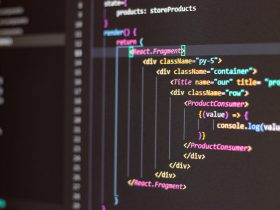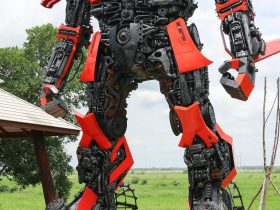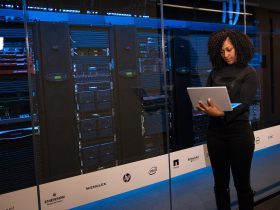Opportunities and Challenges
Artificial Intelligence (AI) has revolutionized various industries, from healthcare to transportation, and has the potential to significantly transform the job market. While AI presents ample opportunities for increased efficiency and productivity, it also brings certain challenges that need to be addressed.
One of the most notable impacts of AI on the job market is the automation of repetitive tasks. Many routine and mundane activities can be efficiently handled by machines, reducing the need for human intervention. This can lead to job displacement, especially in industries that heavily rely on repetitive and predictable tasks. For example, manufacturing plants that employ humans for assembly line work may gradually replace them with AI-powered robots to improve accuracy and speed.
However, these job losses should not be seen as entirely negative. With the elimination of repetitive tasks, workers can focus on more complex and creative responsibilities. As a result, the demand for higher-skilled jobs is expected to increase. Professionals will need to upskill and adapt to the changing job landscape to remain employable. Companies can invest in reskilling programs to ensure a smooth transition for their workforce, supporting their employees’ growth and development.
AI can also create new job opportunities that were previously unimaginable. As AI continues to advance, there is a growing demand for data scientists, AI engineers, and machine learning experts. These specialized roles require individuals with a deep understanding of AI algorithms, programming languages, and analytical skills. As a result, there will be a surge in demand for talent in STEM (Science, Technology, Engineering, and Mathematics) fields.
Another positive impact of AI on the job market is the augmentation of human capabilities. AI-powered tools can assist professionals in making informed decisions and enhancing their work. For example, doctors can use AI algorithms to analyze medical images and detect potential diseases at an early stage, improving patient outcomes. This augmentation of human capabilities can lead to greater job satisfaction and higher overall productivity in various industries.
However, there are also challenges associated with the integration of AI into the job market. Concerns surrounding ethics, privacy, and bias need to be addressed. AI algorithms are only as good as the data they are trained on, and biases can inadvertently be introduced into the decision-making process. This can lead to discriminatory outcomes, such as biased hiring practices or unfair credit scoring. It is crucial to develop robust regulations and ethical guidelines to ensure responsible and unbiased AI implementation.
Moreover, the rapid adoption of AI may lead to a mismatch between the skills demanded by employers and those possessed by job seekers. There is a need to bridge the skills gap and provide adequate training to individuals to meet the changing demands of the job market. Education systems, alongside businesses, should proactively prepare the workforce for the AI-powered future by incorporating AI education into school curricula and offering continuous learning opportunities.
In conclusion, AI has the potential to bring significant opportunities and challenges to the job market. While job displacement may occur, there will also be new roles requiring specialized skills. Augmentation of human capabilities will improve overall productivity and job satisfaction. However, addressing concerns around ethics, privacy, and bias is crucial for responsible AI implementation. By embracing the potential of AI while investing in reskilling initiatives, we can ensure a successful and inclusive transition to an AI-powered job market.



















Leave a Reply